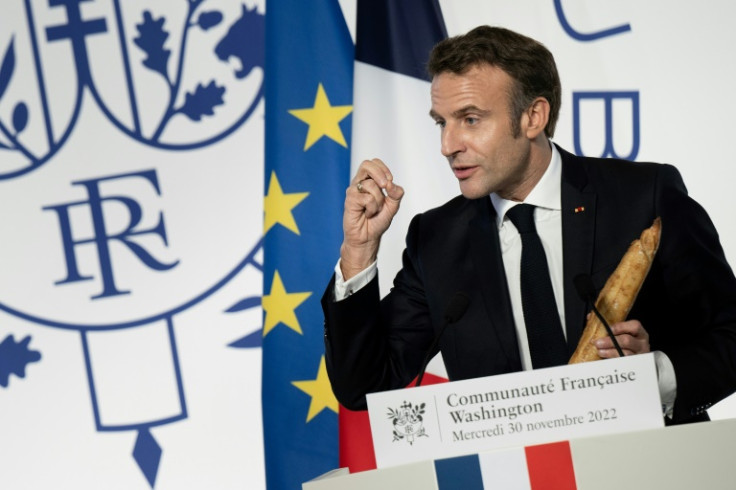French fury over pension law is more than what it seems
France's citizens have protested for months over what appears to be the extension of the retirement age by two years. But the issue runs deeper. The public is upset at the president who they believe was voted in to do nothing.

Despite the massive protests that have rocked France over the last few months, French President Emmanuel Macron signed into law a controversial bill that now raises the retirement age from 62 to 64. The government forced the bill through parliament without a final vote.
The official retirement age in most EU countries ranges from 65 to 67 years old. However, some countries have different retirement ages for men and women, and some have provisions for early retirement or reduced pension benefits for those who retire before the official retirement age.
The state pension age in the UK is currently 66 years old for both men and women, and it is set to increase to 67 years old by 2028. However, the UK also has private pension plans, and the retirement age for these plans can vary. Some plans may allow individuals to retire earlier than the state pension age, but they may receive a reduced pension amount.
In the US, there is no official retirement age. However, for individuals who are eligible to receive Social Security retirement benefits, the full retirement age (FRA) varies based on the individual's birth year. For those born in 1960 or later, the FRA is 67 years old. For those born between 1938 and 1959, the FRA gradually increases from 65 to 66 years old. For those born before 1938, the FRA is 65 years old. Additionally, some employers may set a retirement age for their employees, which can vary based on the company's policies and the type of retirement plan offered.
Ultimately, by reviewing the pension laws and retirement ages in other countries, it appears the French are not bad off as they can retire earlier. So why the fuss? France's new pension law is more or less in line with Western retirement and pension standards.
As noted by the Associated Press: "Many governments in the developed world are in similar situations. Population growth is down, people are living longer, medicine is better and benefits cost more. Democracies' attempts to balance budgets by cutting benefits, particularly in countries with generous plans like France's, put administrations at risk."
In many countries, citizens would likely not react to a change in the pension laws the way the French did. It seems what citizens are most upset about is the fact that Macron resorted to what is being referred to as the "nuclear option" by relying on a special article of the French constitution that allows the government to force a bill through without a final vote. That decision is what seems to have prompted outrage across France that further fueled discontent and galvanized his critics' image of him as a monarchical leader.
Laurent Lemasson, writing in The Critic, seems to agree with a number of other commentators that Macron was not so much voted in for being himself, but rather simply for not being the leader of the far-right party, Rassemblement National, Marine le Pen. French voters seemed to want the enemy they know over the leader they do not know and they did not want to place the future of the country in Le Pen's hands.
Lemasson writes: "By preferring to keep Emmanuel Macron at the Elysée, last year, the French really made the choice of a certain form of conservatism: they preferred a man whose serious flaws they knew but who at least guaranteed a form of stability, rather than to rush into the storm with a captain who has never sailed and whose moral and intellectual capacities do not inspire confidence. This was not irrational, but it meant that they expected the reappointed president to keep quiet for five years."
But Macron has now committed the sin of not keeping quiet and making decisions contrary to the opinion of the average French voter. While some may view the French as lazy and unwilling to work for their pension, others view the French anger mainly as bottled-up anger at Macron himself for daring to become even more unpopular at a time when his election victory can barely have been considered a victory.
Macron's move is unique since politicians will often make decisions based on popularity and maintaining stability and tend to avoid forcing through laws that create so much nationwide tension and protest. Perhaps Macron believes he is ultimately benefiting the country in the long run and hopes the public will come to appreciate this new law as time passes. As a progressive, Macron aims to bring France in line with his policies and vision and French citizens will have to follow along if they do not want Le Pen as their leader.

Daniel is a business consultant and analyst, with experience working for government organisations in the UK and US. On his free time, he regularly contributes to International Business Times UK.
© Copyright IBTimes 2025. All rights reserved.




















